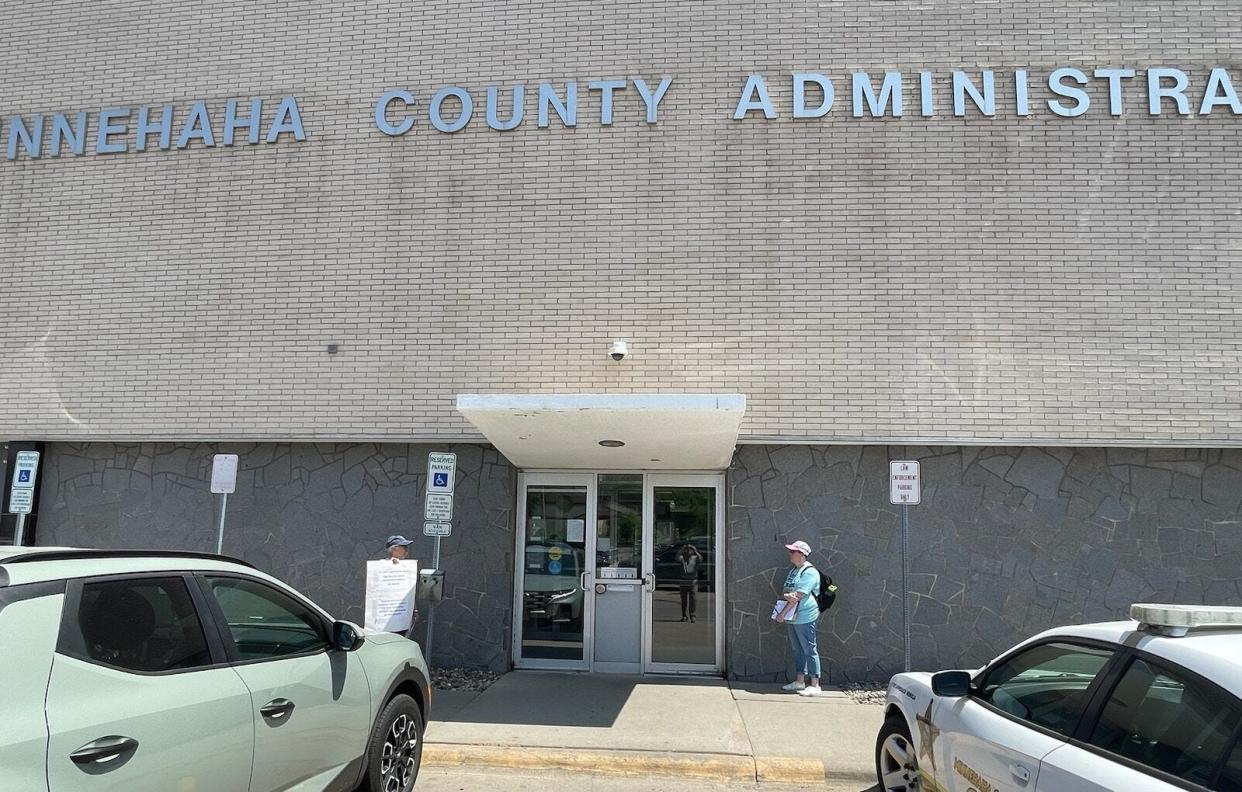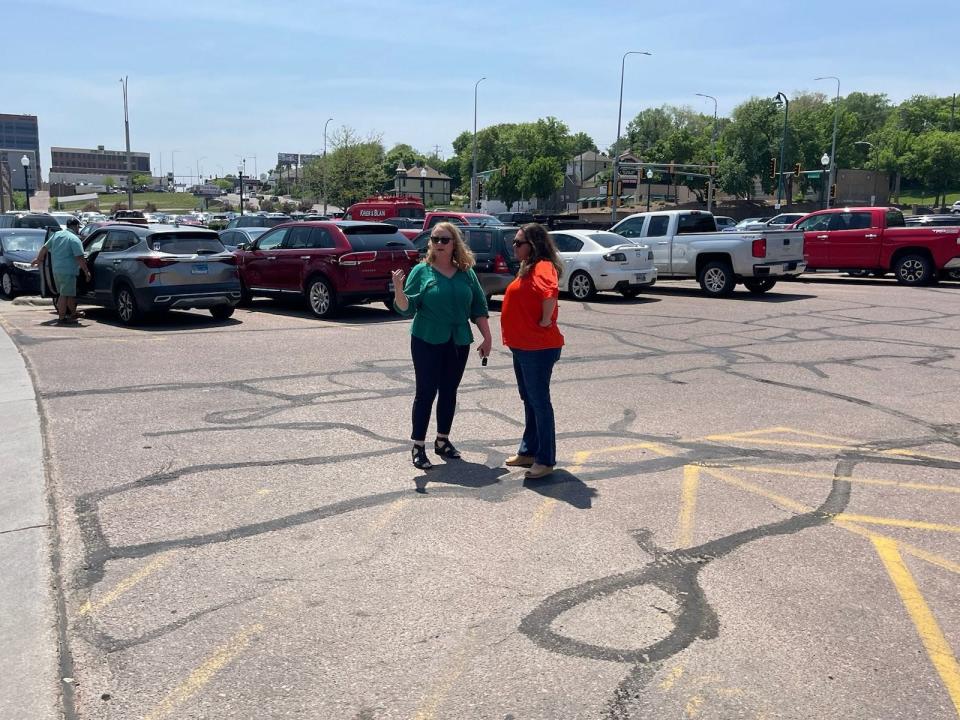Grassroots organization Dakotans for Health reaches settlement with Minnehaha County

- Oops!Something went wrong.Please try again later.
- Oops!Something went wrong.Please try again later.
Dakotans for Health, a grassroots organization seeking to put an abortion measure on the 2024 ballot in South Dakota, has reached a settlement with Minnehaha County regarding the circulation of petitions at the county administration building.
As part of the agreement, Minnehaha County will formulate a new public use policy that removes references to a designated area for petition circulators and also removes language requiring circulators to check in with the county auditor before engaging in political activity on the central Sioux Falls campus.
Dakotans for Health agreed to keep petition circulators away from the area directly in front of the administration building's main entrance doors and also away from an area a few feet west of the entrance so they don't interfere with people with disabilities getting in and out of vehicles. The group also agreed not to "commence any new action or lawsuit" regarding the county's policy as long as the prescribed changes are made.
The settlement agreement was signed by Dakotans for Health executive director Rick Weiland and Minnehaha County Commission chairperson Jean Bender.
"We're pleased that our First Amendment right to circulate these petitions, which was threatened with this policy, is no longer being threatened," Weiland told News Watch. "We lost some ground in having to go through this process, but we protected our right to be able to circulate at one of the busiest public buildings in the state."
U.S. District Judge Roberto Lange granted a preliminary injunction in June that prevented Minnehaha County from enforcing designated areas and check-ins for petition circulators as part of what opponents called an overly restrictive policy at the county’s administration building.
The policy, recommended by county Auditor Leah Anderson and passed May 2 by the Minnehaha County Commission, came in response to what some county employees and customers characterized as increasingly aggressive behavior from circulators and counter-protestors as signatures are sought for a proposed ballot amendment to enshrine the right to abortion in the South Dakota Constitution.

The rules restricted petition circulation to two designated rectangular areas: one about 50 feet from the main entrance to the building in the parking lot off Minnesota Avenue and the other southeast of the main entrance to the courthouse.
The policy mandated that circulators check in at Anderson’s office prior to conducting political activity “to permit the placement of safety markers and to verify space availability within the designated areas.”
In his June 13 ruling, Lange wrote that Dakotans for Health representatives “have shown a likely violation of their First Amendment rights, and the public interest is served by protecting these rights.” He added that his ruling restrains the county from enforcing any part of the policy that requires “check-in” with Anderson’s office or restricts petition circulators to “designated areas.”
The ruling does not prevent the county from enforcing its previous policy’s rules regarding the behavior of petition circulators, Lange wrote, noting that the county already had provisions in place requiring signature gatherers to conduct themselves in a “polite, courteous and professional manner” and not “obstruct individuals as they enter and exit the building.”
The legal tussle over the county’s petition policy was viewed as crucial to the battle over South Dakota’s abortion ban and whether voters should decide the issue in 2024.
If passed, the abortion measure would add the right to abortion in the South Dakota Constitution and supersede a 2005 state trigger law that took effect when Roe vs. Wade was overturned and made it a Class 6 felony to perform an abortion except to save the life of the mother.
Dakotans for Health needs to collect a minimum of 35,017 signatures to place the abortion constitutional amendment on the ballot. The goal is to submit 60,000 or more to ensure that ballot access isn’t foiled by invalidated signatures or other technicalities. The deadline to submit signatures is May 7, 2024.
Weiland told News Watch on Nov. 21 that the group is about two-thirds of the way to its goal of collecting 60,000-plus signatures.
Called the “gold standard” of petition circulation by groups soliciting signatures for ballot measures, the county administration building features a steady flow of foot traffic from the parking lot to its main entrance, where circulators are often stationed with clipboards and requests for support of their political cause.
Some of the petition circulators have clashed with volunteers from the anti-abortion Life Defense Fund, whose founders call the proposed amendment “a grave threat to life in our state.” The group aims to thwart petitioners through its “Decline to Sign” campaign.
“All we’re saying is that people should have an unimpeded right to decide whether to sign petitions and then to vote on issues that affect them,” said Leach.
Much of the debate focused on the yellow-striped rectangular box in the parking lot that was a designated area under the disputed policy.
Dakotans for Health claimed it would force circulators to shout at potential signers to go out of their way and potentially walk through parking-lot traffic to engage in conversation.
“It’s like an invisible cage,” said Weiland, whose group is also collecting signatures for an initiated measure on the 2024 ballot to repeal the state grocery tax. “No one’s going to come through there.”
This article originally appeared on Sioux Falls Argus Leader: Dakotans for Health reaches settlement with Minnehaha County

